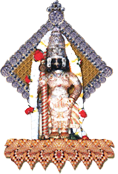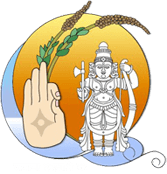न जायतॆ म्रियतॆ वा कदाचिन् न अयं भूत्वा भविता वा न भूयः
अजः नित्यः शाश्वतः अयं पुराणः न हन्यतॆ हन्यमानॆ शरीरॆ ॥ २.२० ॥
ನ ಜಾಯತೇ ಮ್ರಿಯತೇ ವಾ ಕದಾಚಿನ್ ನ ಅಯಂ ಭೂತ್ವಾ ಭವಿತಾ ವಾ ನ ಭೂಯಃ
ಅಜಃ ನಿತ್ಯಃ ಶಾಶ್ವತಃ ಅಯಂ ಪುರಾಣಃ ನ ಹನ್ಯತೇ ಹನ್ಯಮಾನೇ ಶರೀರೇ || ೨.೨೦ ||
na jAyatE mriyatE vA kadAchin na ayaM bhUtvA bhavitA vA na bhUyaH
ajaH nityaH shAshvataH ayaM purANaH na hanyatE hanyamAnE shareerE || 2.20 ||
Neither is he (soul or jeeva) born, nor does he die; and having been once in existence, he is not to be produced again; he is unborn and indestructible; he is eternally of the same character; he is a wanderer through the bodies; he is not slain when the body is slain.
This same verse can be translated in another way with first half describing the Lord, and the other half describing the soul:
This highest person (Lord) is neither produced, nor destroyed; having been for ever in existence, He at times becomes manifest, but He is never born [with a physical body].
This soul too is unborn, indestructible and eternally of the same character, being the wanderer through the bodies; but he is not destroyed even when the body is destroyed.


